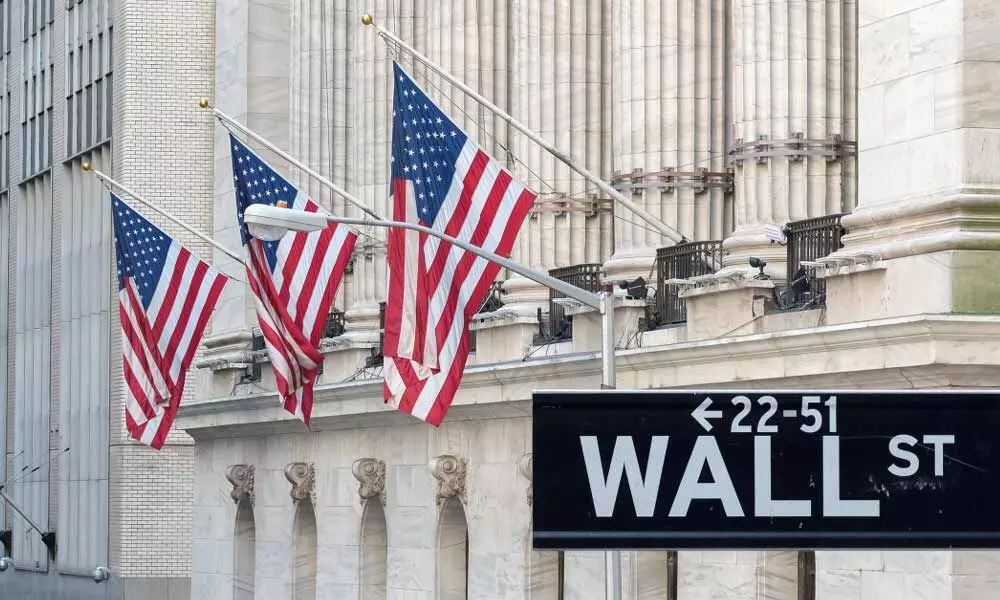Is Wall Street ready to work on China time?
There are plenty of other examples of US-based investors getting burned because they weren’t paying attention to facts on the ground in China
image for illustrative purpose

Many Chinese blue-chips have secondary listings in Hong Kong
Three cheers for the US House of Representatives for passing a bill that could kick out Chinese companies listed on American exchanges. The tens of thousands of financial worker bees who have built their careers trading and servicing behemoths like Alibaba Group Holding Ltd and JD.com Inc. can finally get some sleep at night.
Nearly a decade ago, I started my journalism career with Barron's, the financial investment magazine. Based in Hong Kong, I would work well into the night calling emerging markets fund managers in New York, asking them for their views on China and their stock picks. Often, I went to bed at 2 AM.
I was no exception. Ringing the Nasdaq bell used to be every Chinese tech company's Holy Grail and hundreds have managed to snag a prestigious listing in one US exchange or another. But that meant that Asia-based investors had to be vigilant at night in their quest to buy into the "China dream" being traded in the US daytime. The time zones are halfway around the world from each other. Few went to sleep before New York trading began, and some habitually woke up in the middle of the night checking markets on their phones.
Now, the dynamic could change. If US-listed Chinese companies have no choice but to "return home," they can't, of course, be bought or sold in New York or other US exchanges. But many of the Chinese blue-chips have secondary listings in Hong Kong so stockholders should hold on to their shares because that's how they can continue to chase the China dream. Hong Kong will be where the trading will flow.
And the activity is bound to grow, despite being exiled from the US that's because mainland investors will be allowed to buy into the secondary listings via the Hong Kong Stock Connect, which links the city's exchanges to those in Shanghai and Shenzhen. Right now, Hong Kong already hosts 29 per cent of Alibaba's outstanding shares, versus 22 per cent a year ago, exchange data show.
Why would Chinese companies want to be listed in the US, anyway? Prestige is intangible and fleeting. Five years ago, the more solid arguments were that the mainland exchanges lacked depth, or that Hong Kong was too obsessed with profitability, a requirement that discriminated against tech firms that had little yet to show but lots of potential. Those factors have changed dramatically because of listing rule changes in Hong Kong. A lot of trading in Chinese companies has already shifted from New York to Asia.
The ostensible reason for the US ban - which passed the Senate months ago and will become law if and when Donald Trump signs the legislation - are the accounting scandals that have plagued Chinese companies. The Securities and Exchange Commission blames them on Beijing's refusal to allow the Public Company Accounting Oversight Board - an auditor of auditors set up after the Enron scandal - to inspect the work papers of its US-listed Chinese companies.
While shifty accounting is certainly part of the problem, many fund managers based in New York never really looked deeply into where they were sinking their money. Distance is a factor. How would someone sitting in Park Avenue have any sense of what's happening on the ground in China?
Consider Luckin Coffee Inc., the disgraced Chinese coffee chain. Mainland investors never bought into the Luckin story; many said it was not B2B, or B2C, but business to "dumb-ass American money." But Luckin figured out how to latch onto an emerging markets investment theme favored by American investors and raised over $1.6 billion in the US. Imagine: a morning cup much cheaper than Starbucks Corp, served to millions of Chinese who are switching from tea to coffee!
There are plenty of other examples of US-based investors getting burned because they weren't paying attention to facts on the ground in China. Qudian Inc., a fintech based in Xiamen, had a $1 billion IPO on the NYSE in October 2017, but tumbled shortly after because Beijing decided to cap the interest rate lenders could charge to consumers. Chinese education stocks were all the rage in the US until August 2018, when China decided to amend rules governing the country's lucrative private education sector.
The point is, China is an emerging market with fast and furious credit cycles and new regulations springing up alongside nascent industries. While Asia-based investors don't know what's on President Xi Jinping's mind either, they at least have a better sense, having breathed the air and tried out all the new apps and concepts. Plus, new regulations in China never just come out of nowhere: They are often responses to social outcry over local problems. Investors in Asia can sense this in the atmosphere and thus have better risk control.
To be sure, with the incoming Joe Biden administration, there might be compromises and conciliations in the implementation of the new bill. But Wall Street shouldn't feel optimistic about business remaining as usual. China's new securities law, which came into effect in March, states explicitly that overseas regulators can't directly inspect or collect evidence on Chinese soil. Beijing considers this a sovereign issue. Chinese companies are coming home, whether you like it or not.
In journalism, it's valuable being on the ground. Shouldn't that be the case with finance as well? If only to avoid pitfalls, it shouldn't be this easy for Americans to purchase Chinese stocks. Visit the country and see what's happening. To buy China, you need to work in its time zone. (Bloomberg)
Shuli Ren

